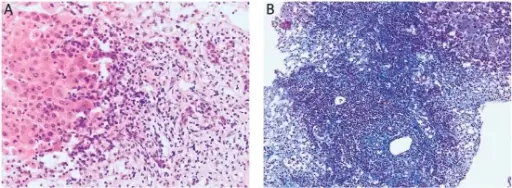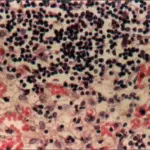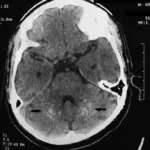Autoimmune polyendocrine syndrome type 1 (APS1) is an inherited autoimmune condition that affects many of the body’s organs.
What is the Pathology of Autoimmune Polyendocrine Syndrome Type 1 (APS1)?
The pathology of autoimmune polyendocrine syndrome type 1 (APS1) is:
-Etiology: The cause of autoimmune polyendocrine syndrome type 1 (APS1) is variations (mutations) in the AIRE gene and inheritance is autosomal recessive.
-Genes involved: AIRE, HLA-DR/DQ
-Pathogenesis: The sequence of events that lead to autoimmune polyendocrine syndrome type 1 (APS1) is a complex recessively inherited disorder of immune-cell dysfunction with multiple autoimmunities and it presents as a group of symptoms including potentially life-threatening endocrine gland and gastrointestinal dysfunctions.
-Morphology: The morphology associated with autoimmune polyendocrine syndrome type 1 (APS1) shows abnormality of the fingernails, abnormality of the cerebral blood vessels, and enlarged adrenal glands.
-Histology: The histology associated with autoimmune polyendocrine syndrome type 1 (APS1) shows abnormal endocrine tissue.
How does Autoimmune Polyendocrine Syndrome Type 1 (APS1) Present?
Patients with autoimmune polyendocrine syndrome type 1 (APS1) typically are either male or female present at the age range of childhood or adolescence. The symptoms, features, and clinical findings associated with autoimmune polyendocrine syndrome type 1 (APS1) include hypoparathyroidism, Addison disease, weak teeth, and chronic diarrhea or constipation.
How is Autoimmune Polyendocrine Syndrome Type 1 (APS1) Diagnosed?
Autoimmune polyendocrine syndrome type 1 (APS1) is diagnosed by looking at a person’s medical history, symptoms, physical exam, and laboratory test results. Laboratory tests include deletion/duplication analysis, sequence analysis of the entire coding region, targeted mutation analysis, and Sanger sequencing to loof for the AIRE gene.
How is Autoimmune Polyendocrine Syndrome Type 1 (APS1) Treated?
Autoimmune polyendocrine syndrome type 1 (APS1) is treated with hormone replacement and medical management for any complications such as medication for candidiasis.
What is the Prognosis of Autoimmune Polyendocrine Syndrome Type 1 (APS1)?
The prognosis of autoimmune polyendocrine syndrome type 1 (APS1) is fair.



